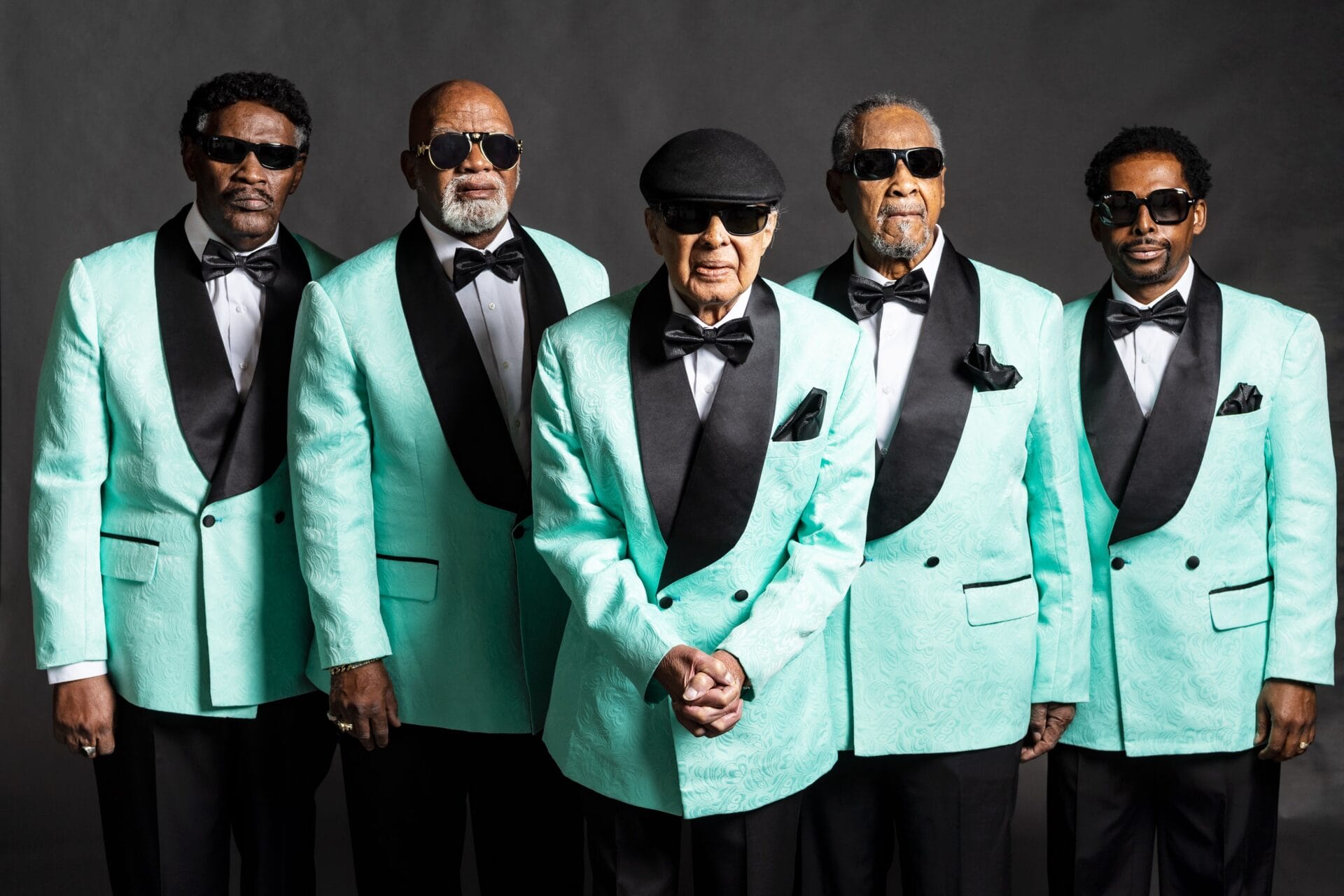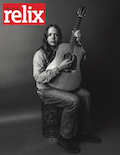Reflections: Blind Boys of Alabama

What do Lou Reed, Ben Harper, Chrissie Hynde, Peter Gabriel, Béla Fleck, Prince, Bonnie Raitt, Tom Waits and Bon Iver’s Justin Vernon all have in common? Two things. First, all of them have—at one time or another— collaborated with The Blind Boys of Alabama. Second, none of them were born yet in 1939, when that renowned gospel troupe first sang together. Since then, there have been several Grammys—including a Lifetime Achievement Award— performances for presidents at the White House and a National Heritage Fellowship from the National Endowment for the Arts. There have also been tours all over the world and dozens of albums.
Of course, there have been many personnel changes since the beginning, but the Blind Boys—who are all indeed visually impaired—carry on, still true to the devotional music that first brought the vocal group together at the Alabama Institute for the Negro Deaf and Blind in Talladega, Ala.
“Sam Cooke and the Blind Boys were once on Specialty Records at the same time,” group member Ricky McKinnie says, referring to a time in the early 1950s, three decades before he joined the group. “Specialty tried to get the Blind Boys to do some secular music, but they decided to stick with the gospel. And even now, gospel music has brought us this far.”
Exactly just how far The Blind Boys of Alabama have come is amplified on their latest album, Echoes of the South. Among the highlights are rousing takes on Curtis Mayfield and the Impressions’ inspirational “Keep on Pushin’” and Stevie Wonder’s “Heaven Help Us All.” McKinnie says that the combo, which previously covered Wonder’s “Higher Ground,” feels a special kinship with their fellow blind artist, and the 1970 tune was a natural choice. “‘Heaven Help Us All’ talks about the way it is now,” he says. “If God doesn’t reach down and make a difference in people’s lives, show people where they’re going wrong or give people a heart, we got a problem.”
“Friendship,” an album standout, was written by Homer Banks and Lester Snell and originally recorded in 1999 by Pops Staples, another late great with gospel roots. McKinnie says that the song speaks to his relationship with the late Clarence Fountain, one of the co-founders of the group, known in its early years as the Five Blind Boys of Alabama. “He was the group leader,” McKinnie says. “A lot of times, we didn’t see eye to eye, but we did more than we didn’t.”
Echoes of the South marks a period of change for the esteemed group: Both Paul Beasley, a group member who wrote a couple of the album’s tunes, and Ben Moore, who also worked on the sessions, passed away after the album was finished. The LP also marks the final appearance on a new Blind Boys recording by former leader Jimmy Carter, who is now in his 90s. “Had it not been for Jimmy Carter and Clarence Fountain, there would not have been a Blind Boys of Alabama,” says McKinnie.
While there is a lot of looking back on Echoes, the Blind Boys, as they’ve always done throughout the years, are busy thinking about the future—new members have already been recruited and plans are currently being made. McKinnie, who also serves as the Blind Boys’ business manager, says the album “takes us back to our roots.”
He adds: “A few of the songs come from our old records. We thought about a lot of songs that we used to do and picked some of the best. We used some great musicians and producers. It really portrays the Blind Boys at our best.”
Once the recording was wrapped up, the singers began thinking about artwork that would adorn the album cover. They realized that, in all of their years, no Blind Boys of Alabama release had ever featured Braille. The vinyl version of Echoes of the South checks that box. “It shows what blindness is about,” McKinnie says. “The Braille is a signature. We thought this was a signature record, so we said, ‘Let’s put some signature letters on it.’ And they are authentic too; they’re not just circles on the record. We let people know that a disability doesn’t have to be a handicap. A handicap is just a liability and we all have liabilities. It’s not about what you can’t do. It’s about what you do that makes a difference.”
That uplifting attitude, McKinnie believes, explains why so many secular artists have been drawn toward working with the Blind Boys. “We’ve learned that people are just people,” he says. “As long as you have an open mind and the lyrics are good, it’s not hard to work with anybody. We’re glad to help; our doors stand open. As my mother would say, ‘Working together works.’ People need people.”
One of the reasons the Blind Boys have been so successful in extending their reach beyond the core gospel audience, McKinnie theorizes, is because the songs they choose to perform carry a universal message of positivity that doesn’t appeal to a specific religious conviction—or lack thereof. “Gospel music,” he says, “resonates because what’s from the heart reaches the heart. Gospel is straight from the soul. The Bible says, ‘If I be lifted up, I’ll draw all men.’ And we are still lifting up the name of Jesus and still talking about friendship and people coming together. People can feel where you’re coming from, and I think our faith and our stick-to-it-iveness is what’s kept us out here this long. If you can feel it, it makes a difference. And gospel music is feel-good music.”





















